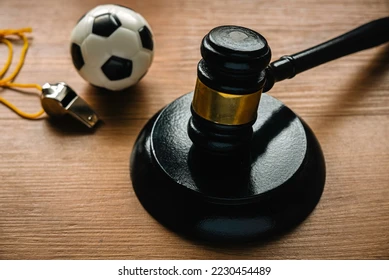Introduction
Sports law refers to a set of legal principles and regulations that govern the various aspects of sports and athletic activities. It covers a wide range of legal issues related to sports, such as contractual agreements, labor and employment law, intellectual property law, tort law, anti-discrimination law, and criminal law.
Sports law is also closely connected to the rules and regulations of various sports governing bodies, such as the International Olympic Committee, FIFA (Federation International de Football Association), and the National Collegiate Athletic Association (NCAA). These organizations have their own set of rules and regulations that athletes, coaches, and other stakeholders must follow.
In summary, sports law plays a vital role in the sports industry by providing legal guidance resolving legal guidance, and resolving disputes related to sports activities.
National Sports Policy
2001 was drafted with three-fold objectives. The guidelines of the policy are as follows-
- The first objective was to clearly define the areas of responsibility of all those agencies that looked after the promotion and development of sports. In the sports industry, promotion is considered vital for all the players and sponsors.
- The second objective was a found those sports federations that were eligible enough for coverage under these guidelines and them lay down the procedures that have to be followed by these federations to get governmental aid and assistance and even avail sponsorship.
- The third step was to decide the eligibility criteria that the government would follow to release grants to the sports Federations. These conditions had to be chosen carefully so that the federations took it seriously.
What is a basic requirement of sports law?
The requirements for sports law can vary depending on the specific area of law and the jurisdiction, but some basic requirements include having a law degree, passing the bar exam to become a licensed attorney, and having knowledge and experience in the field of sports. In addition, a strong understanding of both the legal and business aspects of sports is important, as well as familiarity with relevant governing bodies and regulations.
Some specific areas of focus within sports law include contracts, torts, labor and employment, intellectual property, and anti-doping regulations
Sports Law in India
Sports law relates to the sporting activities in a country. It is a newly emerging line of law which deals with the legal issues pertaining to acts and issues of players, teams, managers and associates. It includes the traditional areas of laws like contract law, trademark law, tort law, and various others.
Authorities of Sports Law in India
- Ministry of youth affairs and sports.
- National Sports Federation.
- Sports law and welfare association of India.
- Sports Authority of India.
- Team sports also have their own governing bodies like BCCI and the Indian Hockey Federation.
Who formulates various sports policies in India
The Ministry of Youth affairs and Sports is the authority that formulates policies regarding sports in India.
Indian Constitution and Sports
- Placing in the Indian Constitution
- Subject to 7th Schedule
- State List
- Entry 33 of the Indian Constitution, includes sports in the category of, “Games and Entertainment”.
- The state has been given a wider power to cater to the various aspects of sports and analogous activities.
Key Area of Sports Law in India
- Anti-doping- Doping-related regulations in India are predominantly governed and controlled by National Doping Agency (NADA)
- Integrity- Match-Fixing.
- Betting- Betting or gambling is illegal in most India.
- Disciplinary Proceedings- Doping.
Landmark Cases of Sports Law
There have been several landmark cases in sports law. Here are a few examples:
- National Collegiate Athletic Association v. Board of Regents of the University of Oklahoma (1984) – This case challenged the NCAA’s control over college football television contracts and led to the development of the current system of conference-affiliated television contracts.
- O’Bannon v. NCAA (2014) – This case, filed by former UCLA basketball player Ed O’Bannon, challenged the NCAA’s rules prohibiting athletes from receiving compensation for the use of their names, images, and likenesses. The courts ultimately found that these rules violated antitrust laws.
- Murphy v. National Collegiate Athletic Association (2018) – This case overturned a federal law that prohibited states from legalizing sports betting
As a result, individual states are now free to legalize sports betting if they choose to do so.
- Castor Semenya v. International Association of Athletics Federations (2019) – This case, decided by the Court of Arbitration for Sport, centered on the regulation of testosterone levels in female athletes. The ruling allowed the IAAF to enforce regulations that require some female athletes to artificially lower their testosterone levels in order to compete in certain events.
We are a law firm in the name and style of Law Offices of Kr. Vivek Tanwar Advocate and Associates at Gurugram and Rewari. We are providing litigation support services related to law matters in India, please do not hesitate to contact us. We are here to provide you with expert legal counsel and representation tailored to your specific needs and concerns.
Written by: Avichal Singhal Adv.

